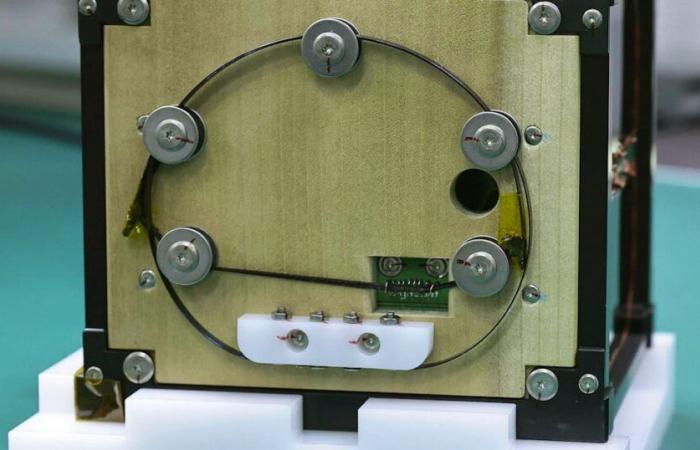The world’s first wooden satellite took off aboard a SpaceX rocket, its Japanese designers announced Tuesday, as part of a mission to resupply the International Space Station (ISS).
IMAGO/Kyodo News
The experimental satellite, called LignoSat and whose appearance is that of a wooden cube only 10 centimeters on a side, was launched aboard an unmanned rocket from NASA’s Kennedy Space Center in Florida, said the Space Studies Center of Kyoto University.
No leftovers
The objective of the material is to anticipate its inevitable end of life: when it eventually re-enters the atmosphere, the wood should burn without generating the usual metallic particles associated with satellites falling back to Earth, according to scientists from Kyoto.
These particles can have a negative impact on the environment but also on telecommunications, according to them.
The wooden satellite, installed in a special container prepared by the Japan Aerospace Exploration Agency, “flew into space safely,” the latter said in a message on X.
A spokesperson for LignoSat co-developer Sumitomo Forestry confirmed to AFP that the launch had been “successful”: the satellite “will soon arrive at the ISS and will be sent into space about a month later » in order to test its strength and durability, she said.
Data will be sent from the satellite to researchers, who can check for signs of deformation and determine whether it can withstand extreme temperature changes.
“Satellites that are not made of metal should become more widespread,” said Takao Doi, astronaut and professor at Kyoto University, during a press conference at the beginning of the year.
ATS






